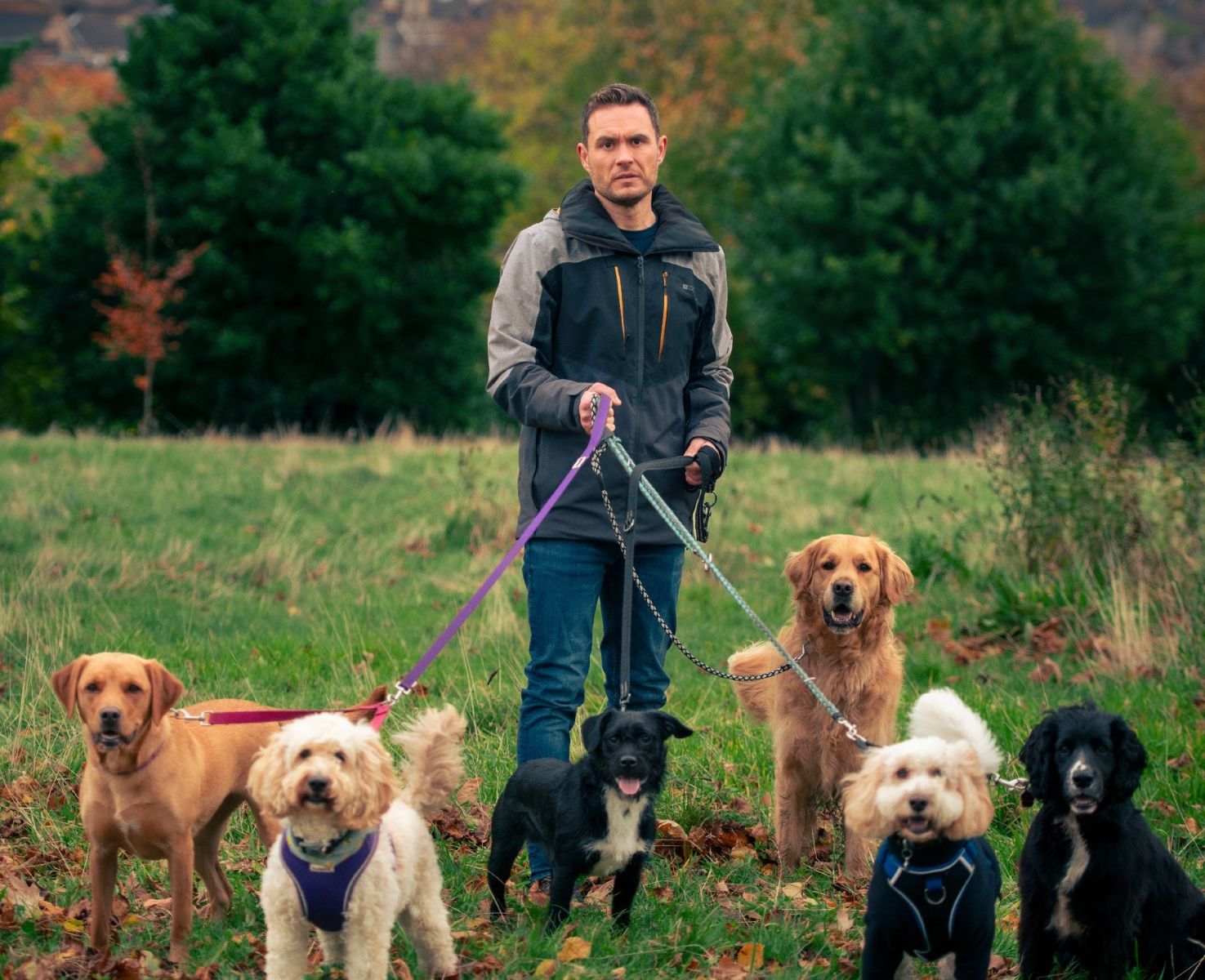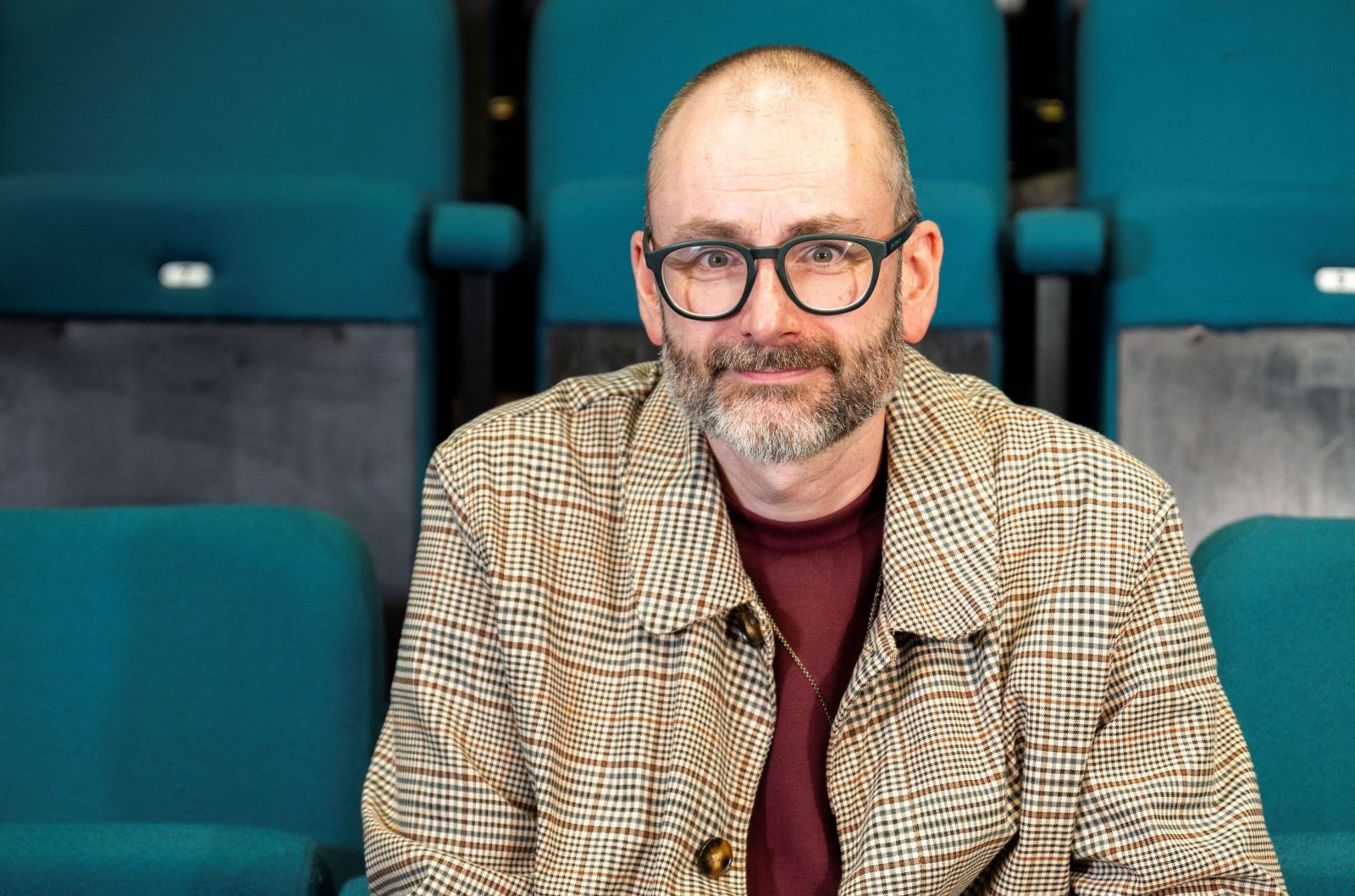Douglas Maxwell on Man's Best Friend: 'It's about wanting to be of service'
Perhaps unsurprisingly, Douglas Maxwell’s play Man’s Best Friend has dogs at its heart. But equally it’s about isolation and the importance of companionship. The playwright talks to Gareth K Vile about combining comedy and tragedy, and the intimacy of one-person shows

From its origins as part of A Play, A Pie And A Pint’s programme at Òran Mór, Man’s Best Friend has become a celebrated example of playwright Douglas Maxwell’s distinctive style. Balancing naturalistic characterisation and fantastical elements, this one-man show follows the adventures of ‘the world’s worst dog-walker’ on a fateful day when he loses all the dogs under his care, only to discover some home truths.
Maxwell admits that the script’s creation was a little traumatic as he ‘grew up with a dog. And at the time of writing, we did have a dog.’ When he was asked by director Jemima Levick to provide a solo show for Jonathan Watson, Maxwell says he wrote it ‘quickly and almost subconsciously. And when I watch it now, it is clear that therapy is happening.’ Initially hoping to have Watson perform the canine voices, when the actor asked for ‘something serious and dramatic,’ Maxwell shaped a drama that he calls ‘the usual thing from me. It is very comic to begin with and then the comedy allows sadness and self-realisation.’
The protagonist Ronnie, now played by Jordan Young (from River City and Scot Squad), hasn’t emerged from lockdown; he’s using his job as a dog walker to avoid his disconnection and convince himself that he is contributing to society. ‘A lot of people got dogs in lockdown,’ says Maxwell. ‘We wanted to connect, we wanted stuff to do, to get out. And a lot of this play is about wanting to be of service. We want to be useful, and the play pivots on acts of generosity. Dogs can help you to do all that.’

Five years on and Ronnie still hasn’t properly re-emerged into society. ‘He had a loss in lockdown, stuff happened and the ceremonies weren’t there to let him move on, so he feels trapped in amber,’ Maxwell continues. ‘Some people pretend lockdown was a dream and then went on with their lives. But Ronnie’s still in the dream.’ Maxwell recognises the potential absurdity of a one-person show, acknowledging that there needs to be a reason for the monologue. For Ronnie, talking to himself appears to be the only way that he can process his experience.
‘This character is a stranger to himself and other people and there is no way he would tell you this stuff if we weren’t in his head.’ But Maxwell is also sensitive to the traditions of Scottish theatre, as well as stand-up, where the techniques of breaking the fourth wall make the solo show familiar and a showcase for remarkable performers.
He draws comparisons with the work of iconic Scottish companies such as Wildcat or 7:84 who used informality and direct address to tackle huge subjects, and even the rambling style of ‘national treasure’ Billy Connolly. ‘Very often, Scottish performances are confessional, testimonial, venting: we are used to the styles and tropes of one-person shows,’ Maxwell explains. ‘There has to be more to it than it’s cheap. And there is no other way to tell the story. The intimate connection between audience and performer makes it better.’
For this touring show, Levick and Maxwell have expanded the script, returning to an earlier version containing an additional act. And with Young stepping in (a younger performer than Watson), the disorientation that Ronnie experiences has become all the more confounding and intense. Man’s Best Friend represents the immediacy of the best Scottish theatre, promising a journey that can accommodate the tragic and the comic, allowing Young to show his skills while reflecting on a very contemporary social anxiety.
Man’s Best Friend, Tron Theatre, Glasgow, until Saturday 12 July, then touring Scotland until Saturday 27 September.